
Not so long ago, Senator Mukhtar Zhumagaziyev suggested reviewing the system of subsidies for agricultural equipment. He expressed the opinion that it is more profitable to support domestic production than to subsidize foreign farm machinery. "The state can subsidize three domestic combines instead of one imported," the deputy said. The senator's initiative was met with hostility by farmers. Farmers believe that the Kazakhstani production is just a screwdriver assembly, and the limitation of the choice will only harm the industry, World of NAN reports.
Didar Beisenbayev, head of the KronAgro company, made no secret of the fact that the country's farmers were already tired of the authorities' manipulation of the subsidies. The agrarian says that farmers unconditionally fulfill all social obligations, but the amount of subsidies is most often reduced, and the equipment of Kazakhstani assembly pesters the owner with endless repairs.
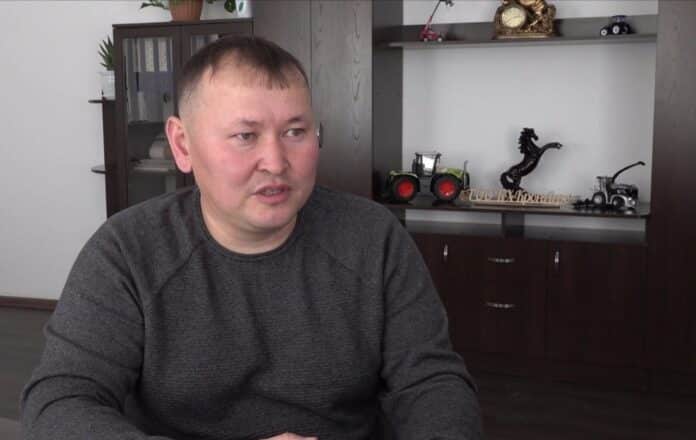 "I bought an imported tractor. I paid the state duty and the scrap duty for it. In the end, all the calculations will come out to the amount I get in the form of subsidies. As we get it, we give it back. I did not see a discount in price. On local production. First of all we do not manufacture anything. Only wheels are screwed on. I have Kazakh combines. The quality leaves a lot to be desired. I bought one in 2019, and it created a lot of problems with repairs the same year. I'm still more inclined to European equipment. They suggest revising the subsidy rates. They are low as it is. They say 25-30%, but there is a limited amount above which they will not pay. There is no 50%, which we hear about. The maximum, whether it is fertilizer, equipment, the amount I received - 35%. The agro-industrial complex of the country is developing. And this is our own bread, milk. We do not ask to increase the amount, but they should leave the amount as it is. If they cut or remove subsidies, farmers will not work at a loss. We will have to raise the price of products.
"I bought an imported tractor. I paid the state duty and the scrap duty for it. In the end, all the calculations will come out to the amount I get in the form of subsidies. As we get it, we give it back. I did not see a discount in price. On local production. First of all we do not manufacture anything. Only wheels are screwed on. I have Kazakh combines. The quality leaves a lot to be desired. I bought one in 2019, and it created a lot of problems with repairs the same year. I'm still more inclined to European equipment. They suggest revising the subsidy rates. They are low as it is. They say 25-30%, but there is a limited amount above which they will not pay. There is no 50%, which we hear about. The maximum, whether it is fertilizer, equipment, the amount I received - 35%. The agro-industrial complex of the country is developing. And this is our own bread, milk. We do not ask to increase the amount, but they should leave the amount as it is. If they cut or remove subsidies, farmers will not work at a loss. We will have to raise the price of products.
The words "local production" and "localization" cause indignation to the head of the farm "Chance". Igor Zhabiak is categorically against such an interpretation. He also doubts the competence of the officials who offer different initiatives, not knowing the industry.
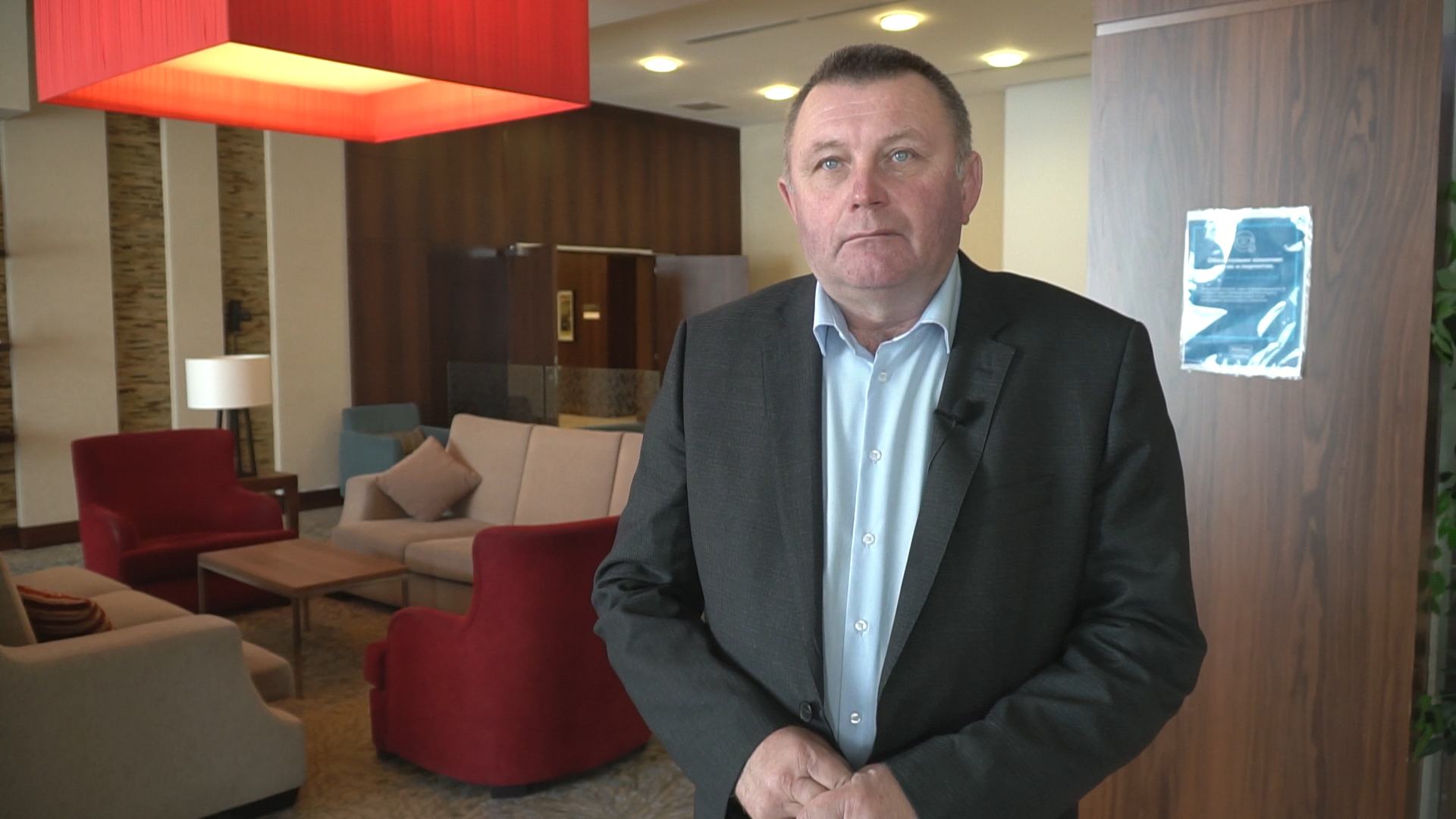 "Today we fundamentally lack domestic production. We all know how to screw on the wheels and mold the lettering. Imported equipment is highly productive and of high quality. In recent years, climatic conditions in Kazakhstan have greatly affected the harvest and the sowing season. And we need productive and efficient tractors and harvesters that harvest crops with high quality. The grain comes out of the imported harvesters of the third class. I do not know what motivates our deputies. I know their agrarian committee well. There are no such far-sighted and intelligent agriculturists there. And that's how we fail to pass a decision on the utilization fee today. This is how we manage to make a decision on the VAT on all equipment at 12% without offset. Why make such a reckless step?
"Today we fundamentally lack domestic production. We all know how to screw on the wheels and mold the lettering. Imported equipment is highly productive and of high quality. In recent years, climatic conditions in Kazakhstan have greatly affected the harvest and the sowing season. And we need productive and efficient tractors and harvesters that harvest crops with high quality. The grain comes out of the imported harvesters of the third class. I do not know what motivates our deputies. I know their agrarian committee well. There are no such far-sighted and intelligent agriculturists there. And that's how we fail to pass a decision on the utilization fee today. This is how we manage to make a decision on the VAT on all equipment at 12% without offset. Why make such a reckless step?
Head of ASTYK-STEM LLP Sergey Zvolsky agrees with his colleague - the development of agriculture is possible only with the use of highly productive modern machinery.
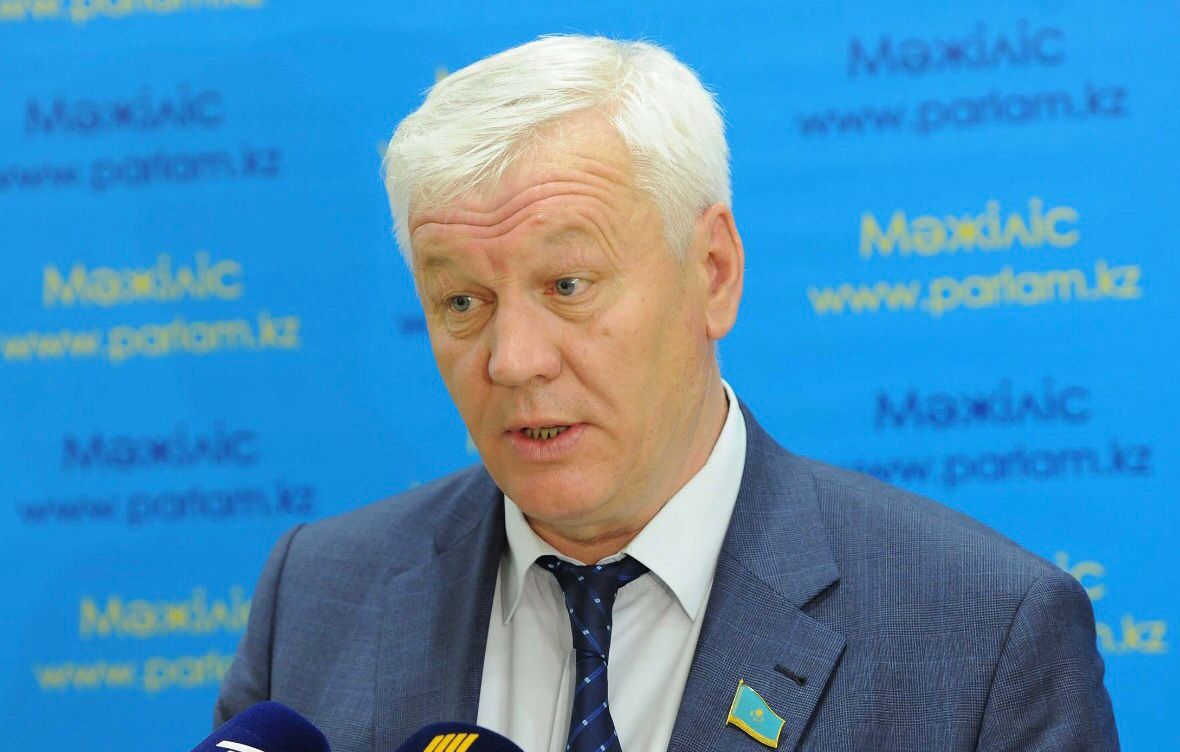 "We are constantly talking about the need to increase labor productivity, to establish export to earn and have foreign exchange earnings. This is only possible with foreign agricultural machinery. Because it is higher class. For example, we have a tractor with artificial intelligence, which can scan the field and call the time, let's say 52 hours, in which it will process an area in such and such weather conditions. And the point is that it will do everything in strict compliance with the technology. The human factor sometimes causes us harm for various reasons. But look where we go back. Domestic production is the same screwdriver assembly, the percentage of localization is very low. Of course, we also need to develop this, but neither should it be infringed. Most farmers who somehow started to develop have to optimize their processes. And this is only possible with modern, highly developed machinery.
"We are constantly talking about the need to increase labor productivity, to establish export to earn and have foreign exchange earnings. This is only possible with foreign agricultural machinery. Because it is higher class. For example, we have a tractor with artificial intelligence, which can scan the field and call the time, let's say 52 hours, in which it will process an area in such and such weather conditions. And the point is that it will do everything in strict compliance with the technology. The human factor sometimes causes us harm for various reasons. But look where we go back. Domestic production is the same screwdriver assembly, the percentage of localization is very low. Of course, we also need to develop this, but neither should it be infringed. Most farmers who somehow started to develop have to optimize their processes. And this is only possible with modern, highly developed machinery.
Aman Ayanov, head of the Ayan farm, said that first he would ask the deputy what kind of car he drives. A comfortable foreign car or an old, obsolete one. The farmer believes that the age of wear and quality of equipment is important for everyone. And in agriculture even more so.
"Last year I bought a foreign tractor for 240 million tenge. A rotary tractor, they do not make them in Kazakhstan. I paid the recycling fee and VAT. It was worth the money and would justify the investment. The on-board computer will calculate fertilizer costs and make yield forecasts. My head will not be swamped with calculations. Comfort for the person working all day in the field is a separate topic. New equipment motivates to work. Last year in some places the yield was up to 25 centners per hectare. Because I invested finances to equip the farm park. We also have domestic machines, but they have outlived their lifespan. This year we plan to buy sprayers, disc sowing complex, rollers. As for subsidies. They never give 25%. Never got 25% net on any equipment. I can't say they don't help. There are investment subsidies, just the size is reduced. I am against dividing subsidies by equipment. The farmer has the right to choose. It also seems that it may very well be a political backlash. They added 12% VAT. Maybe they want farmers to get scared and stop buying foreign machinery".
Azamat Akhmerov, a farmer representing the Dosym farm, also has major complaints against local farm equipment manufacturers. He is sure that local producers of agricultural machinery "have never shown that they move in the context of the benefits they receive".
"In particular, it's the recycling fee, the capital investment incentives they've been getting. Their prices are, at best, on par with the import market, even with the recycling tax they don't pay. We don't see the benefits of using local equipment. It is not made in Kazakhstan. The components are not manufactured here. They are only assembled. And spare parts are hard to find in the season. Because they do not stock their warehouses with spare parts like local producers. At best they are just like poor dealers. Many foreign dealers have better stock than the so-called producers. We have to separate the two. There are those who have learned to produce tillage implements, seeders, trailed, mounted implements, I believe they can be encouraged. What is relatively easy at a small scale to develop with the technical base that we have today. In Kazakhstan combines have been assembled for 10 years. Where is even one nomenclature that would be manufactured in Kazakhstan? Produced to ensure the replacement of these parts? There is none. Everything is imported from Belarus and Russia. Given the current situation, it's getting more and more expensive. Where are the advantages of local assembly? There are none!
P.S. Farmers are against the revision of the machinery subsidy system. The desire to stimulate local assembly should not limit the choice of agricultural producers, our respondents unanimously stated. They recommended the government officials to look for other methods of support for domestic production. Meanwhile farmers are ready to pay more for equipment which will last longer and raise productivity on the farm.






































 "I bought an imported tractor. I paid the state duty and the scrap duty for it. In the end, all the calculations will come out to the amount I get in the form of subsidies. As we get it, we give it back. I did not see a discount in price. On local production. First of all we do not manufacture anything. Only wheels are screwed on. I have Kazakh combines. The quality leaves a lot to be desired. I bought one in 2019, and it created a lot of problems with repairs the same year. I'm still more inclined to European equipment. They suggest revising the subsidy rates. They are low as it is. They say 25-30%, but there is a limited amount above which they will not pay. There is no 50%, which we hear about. The maximum, whether it is fertilizer, equipment, the amount I received - 35%. The agro-industrial complex of the country is developing. And this is our own bread, milk. We do not ask to increase the amount, but they should leave the amount as it is. If they cut or remove subsidies, farmers will not work at a loss. We will have to raise the price of products.
"I bought an imported tractor. I paid the state duty and the scrap duty for it. In the end, all the calculations will come out to the amount I get in the form of subsidies. As we get it, we give it back. I did not see a discount in price. On local production. First of all we do not manufacture anything. Only wheels are screwed on. I have Kazakh combines. The quality leaves a lot to be desired. I bought one in 2019, and it created a lot of problems with repairs the same year. I'm still more inclined to European equipment. They suggest revising the subsidy rates. They are low as it is. They say 25-30%, but there is a limited amount above which they will not pay. There is no 50%, which we hear about. The maximum, whether it is fertilizer, equipment, the amount I received - 35%. The agro-industrial complex of the country is developing. And this is our own bread, milk. We do not ask to increase the amount, but they should leave the amount as it is. If they cut or remove subsidies, farmers will not work at a loss. We will have to raise the price of products. "Today we fundamentally lack domestic production. We all know how to screw on the wheels and mold the lettering. Imported equipment is highly productive and of high quality. In recent years, climatic conditions in Kazakhstan have greatly affected the harvest and the sowing season. And we need productive and efficient tractors and harvesters that harvest crops with high quality. The grain comes out of the imported harvesters of the third class. I do not know what motivates our deputies. I know their agrarian committee well. There are no such far-sighted and intelligent agriculturists there. And that's how we fail to pass a decision on the utilization fee today. This is how we manage to make a decision on the VAT on all equipment at 12% without offset. Why make such a reckless step?
"Today we fundamentally lack domestic production. We all know how to screw on the wheels and mold the lettering. Imported equipment is highly productive and of high quality. In recent years, climatic conditions in Kazakhstan have greatly affected the harvest and the sowing season. And we need productive and efficient tractors and harvesters that harvest crops with high quality. The grain comes out of the imported harvesters of the third class. I do not know what motivates our deputies. I know their agrarian committee well. There are no such far-sighted and intelligent agriculturists there. And that's how we fail to pass a decision on the utilization fee today. This is how we manage to make a decision on the VAT on all equipment at 12% without offset. Why make such a reckless step? "We are constantly talking about the need to increase labor productivity, to establish export to earn and have foreign exchange earnings. This is only possible with foreign agricultural machinery. Because it is higher class. For example, we have a tractor with artificial intelligence, which can scan the field and call the time, let's say 52 hours, in which it will process an area in such and such weather conditions. And the point is that it will do everything in strict compliance with the technology. The human factor sometimes causes us harm for various reasons. But look where we go back. Domestic production is the same screwdriver assembly, the percentage of localization is very low. Of course, we also need to develop this, but neither should it be infringed. Most farmers who somehow started to develop have to optimize their processes. And this is only possible with modern, highly developed machinery.
"We are constantly talking about the need to increase labor productivity, to establish export to earn and have foreign exchange earnings. This is only possible with foreign agricultural machinery. Because it is higher class. For example, we have a tractor with artificial intelligence, which can scan the field and call the time, let's say 52 hours, in which it will process an area in such and such weather conditions. And the point is that it will do everything in strict compliance with the technology. The human factor sometimes causes us harm for various reasons. But look where we go back. Domestic production is the same screwdriver assembly, the percentage of localization is very low. Of course, we also need to develop this, but neither should it be infringed. Most farmers who somehow started to develop have to optimize their processes. And this is only possible with modern, highly developed machinery.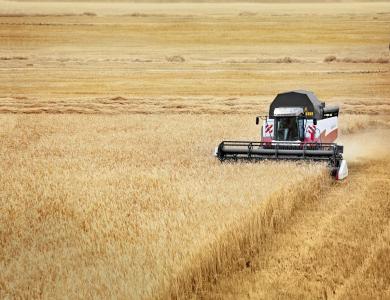
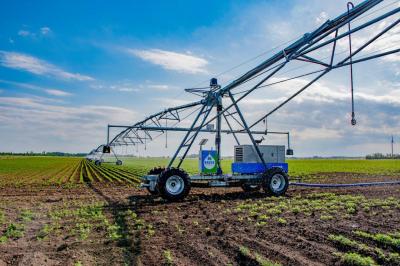
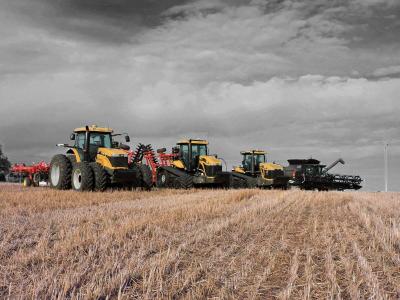
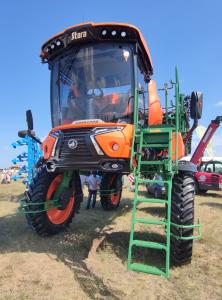
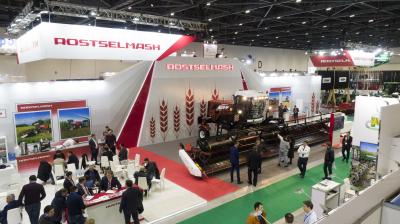
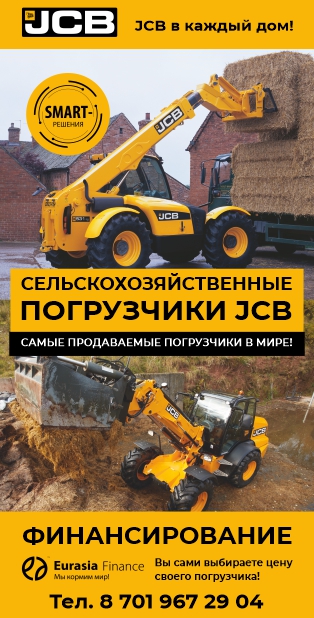

Обсуждение